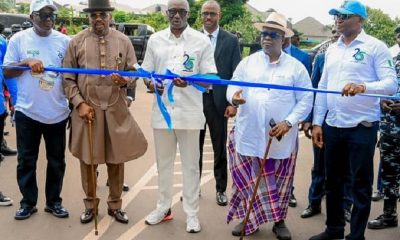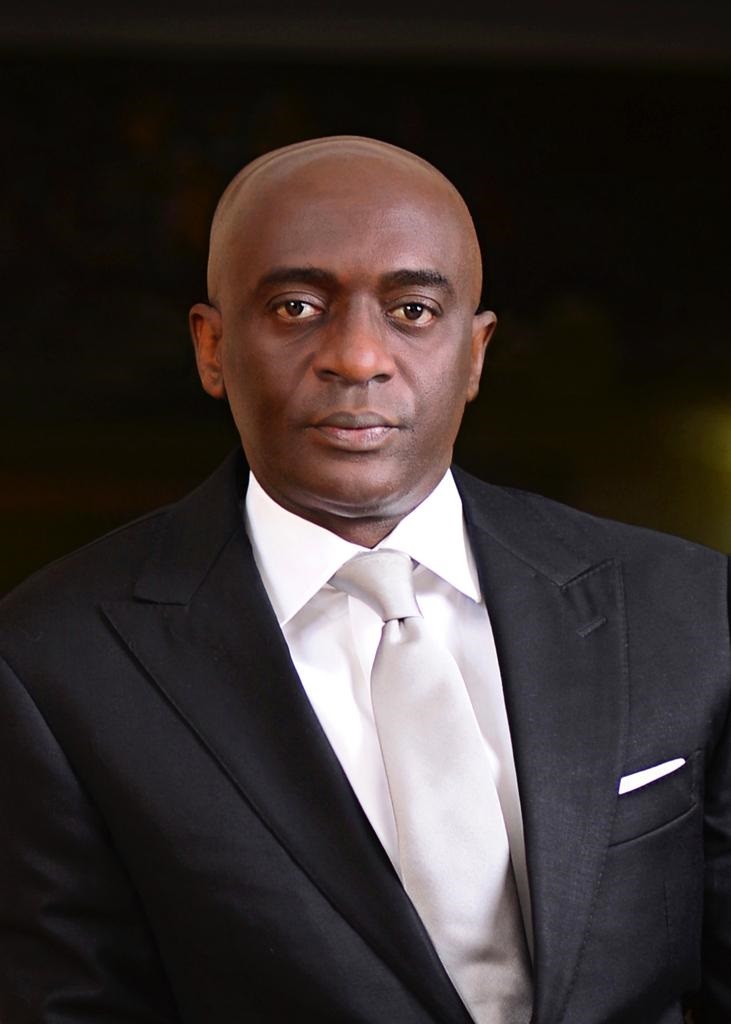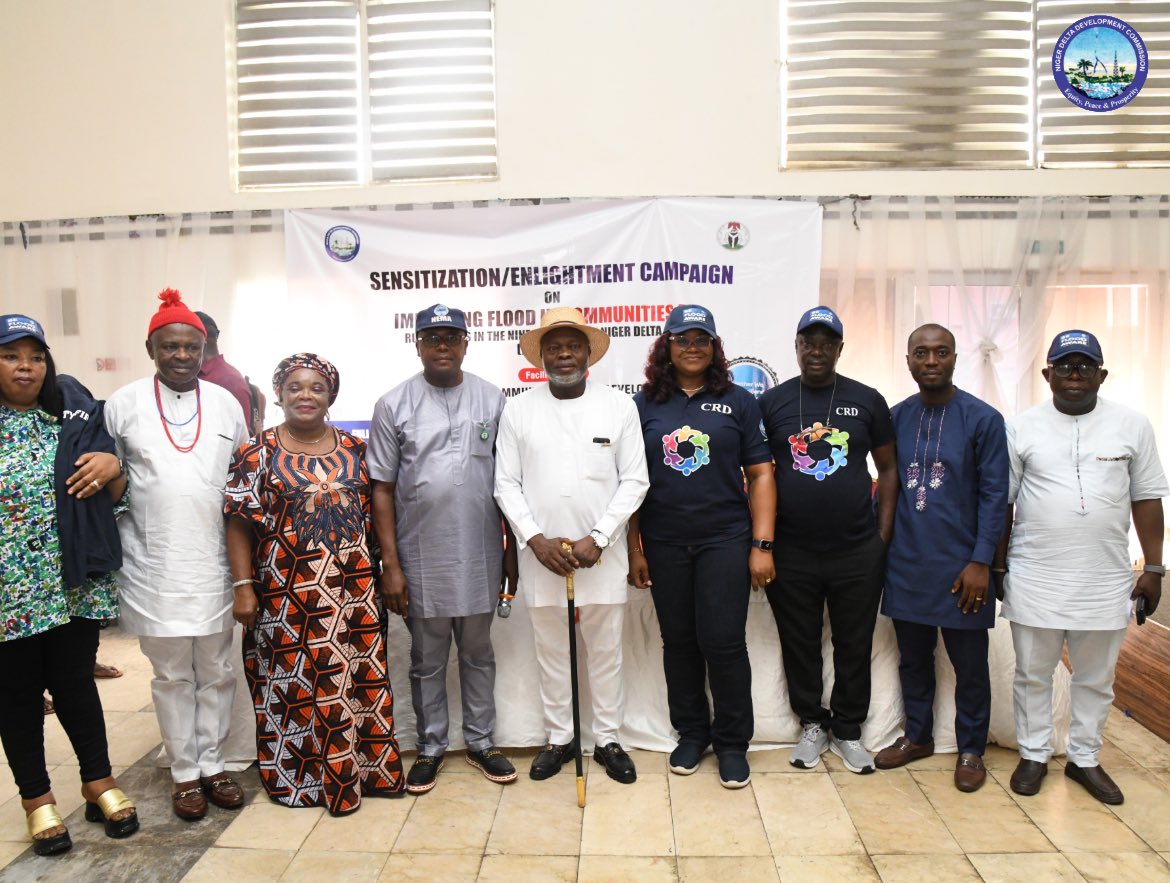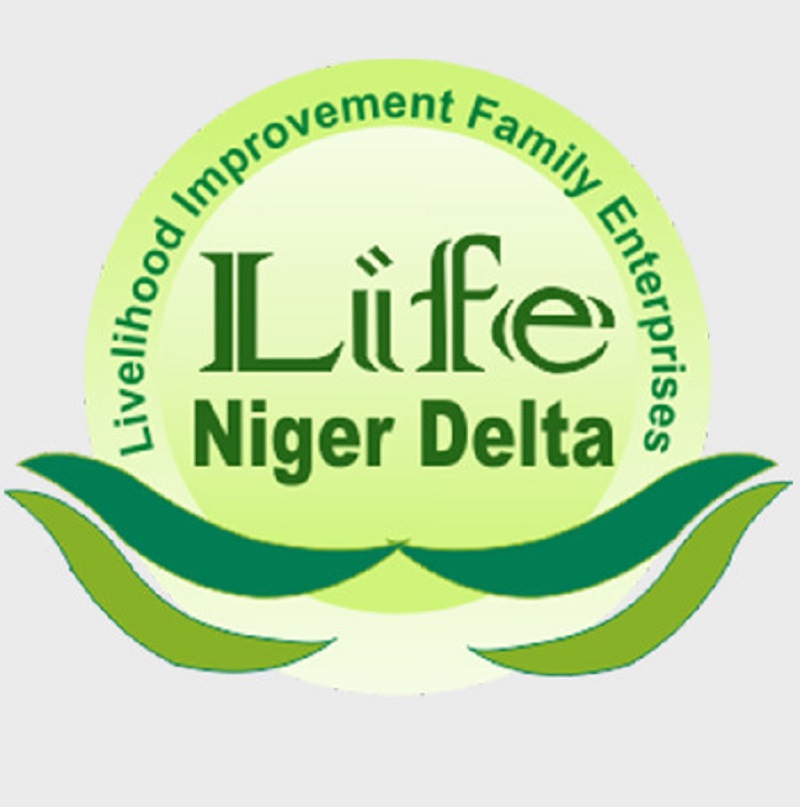Feature/OPED
President Tinubu’s First Anniversary in Office and Signals from NDDC
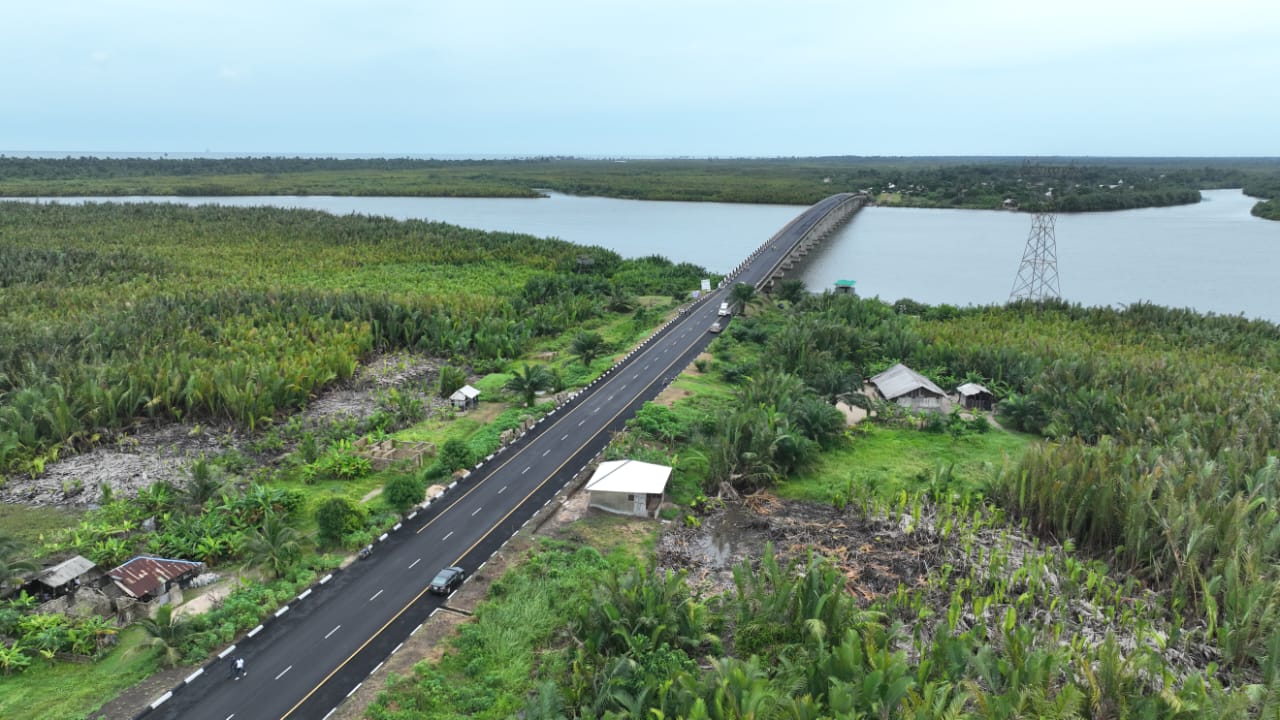
By Jerome-Mario Utomi
History has it that during World War 1, a particular American Psychologist eager to contribute to war efforts adapted Binet’s intelligence test for the US Army as an inexpensive way to differentiate among large numbers of recruits. This was reportedly the first large-scale use of intelligence testing on a group of adults, and it suggested that this school-based test could predict performance in nonacademic situations.
This account recently came flooding while ruminating on efforts of the present Federal Government to chart a course and pilot the holistic development plan of the nation, and the Niger Delta region in particular.
Without a doubt, it will be convenient for many to argue that Nigeria is not at war; that what the country is celebrating is Bola Ahmed Tinubu’s led Federal Government one year in office, which is miles different from the referenced American situation and, therefore, calls for no such critical test or analysis.
Well, the above argument, beautiful as it sounds, may not, in the opinion of this piece, hold water when faced with embarrassing facts. For me, periodic employment of systematic assessment to situate the merit, worth and significance of an administration, via a criteria governed by a set of standards is not only apt but eminently desirable. Objective assessment is globally likened to a pendulum which swings in any direction.
With these points highlighted, the piece will focus on its core concern-which is the recent signals from the Niger Delta region.
For a better understanding of where the piece is headed, the Niger Delta region belongs to the geographical locations that have over the years suffered infrastructural shortage, environmental devastation and protracted socioeconomic failures. The region is not also insulated from scenarios and practices where successive administrations formulate and apply policies based on the situation of the prevailing economy and its effects on the people; where most of the policies in the past began on a promising note but regrettably ended up doing more harm to Nigeria and Nigerians.
However, to carry out an enquiry into how the present government has contributed to the development of the region, it is pertinent to begin by examining, and reviewing different initiatives and policies recently made by the Niger Delta Development Commission, an agency under the Ministry of Niger Delta Affairs, charged with responsibility of facilitating the rapid and sustainable development of the Niger Delta into a region that is economically prosperous, socially stable, ecologically regenerative and politically peaceful.
All available data shows that the most profound decision by Mr President to have the region developed was visibly signposted in his early constitution of the agency’s board and management.
Aside from the fact that the board and management as constituted were filled with young but well-foresighted Nigerians, another observation by our mind’s eyes is that the agency’s leadership within this short period under review have sufficiently removed the veil of doubt and convinced Niger Deltans. critical stakeholders and of course the international community that NDDC is no longer an agency that only exists in frames but has graduated from ‘transaction to transformation’.
As noted in a previous but similar piece, it is not as if past administrations in the country did not, at different times and places make efforts to address the region’s challenges. But noble as those efforts were, considering the level of underdevelopment in the region, such effort appeared too insignificant and short of what is required to care for the region’s development and more particularly, remains a far cry from what was needed to exorcise the ghost of youth unemployment in the region. This ugly narrative persisted in the face of concerns raised by the global community who were chiefly not convinced that what now rested administrations were doing was the best way to solve the problem of the region.
More specifically, it is equally important to underline that it has not been easy for the present leadership to stop the region from going through all pangs associated with rebirth to enthrone true development in which all Niger Deltans will sustainably enjoy modern infrastructure and a healthy environment.
But there is an exception here, as there will always be an exception!
Unlike the past experiences, the present NDDC’s board and management, ably backed by the Presidency and the Niger Delta ministry, have, in the last few months of its existence, crafted people-friendly projects, programmes and initiatives which include, namely; Building Partnerships, Lighting Up the Niger Delta region, Sustainable Livelihood, Improved Youth Capacity and Skills Base, Efficient and cost-effective projects, Project Hope for Renewed Hope, Carbon Emission Reduction, Stakeholder Engagement, Effective and Professional Workforce, Improved Peace and Security among others.
The above action/step has not only made a whole world of difference but partially explains why stakeholders are happy and the region peaceful.
Again, aside from the fact that the new governing board and management have to their credit, a well-established healthy relationship with critical stakeholders within the region and beyond, also worth underlining and of course, a lesson other agencies and Commissions must imbibe, is the frantic efforts to put the Niger Delta region in order via human-friendly programmes such as; youth empowerment, human capital development and democratized infrastructural provisions.
Worthy of mention are the recently commissioned ‘big tickets projects executed by the NDDC; The N8.3 billion 132kv transmission line and a 132kv/33kv sub-station in Ondo communities after 15 years without electricity.; the 27.35km Ogbia-Nembe road in Bayelsa State, a joint project of the Niger Delta Development Commission (NDDC) and Shell Nigeria Exploration Company, which features 7 bridges, connects 14 communities in both the Ogbia and Nembe Local Government Areas. The award of scholarships to 200 successful candidates from the region to pursue Master’s Degrees overseas, a programme which of course is an important component of the agency’s human capital development that seeks to use education to change the fortunes of the region, among others.
Very key, NDDC’s solutions to youth unemployment and development of a climate for a sustainable future and innovation will assist promote the critical thrust of governance and maximize the benefits citizens derive from governance.
Talking about youth unemployment in Nigeria, a report recently captured it thus: “We are in dire straits because unemployment has diverse implications. Security-wise, a large unemployed youth population is a threat to the security of the few that are employed. Any transformation agenda that does not have job creation at the centre of its programme will take us nowhere”.
Finally, as the nation celebrates, it is equally an open secret that randomly, it has not been an easy road for Nigerians. It has been a rough and tumble ride, yet Nigeria and Nigerians are marching forward. What this tells us as a people is that The President should graciously redouble his efforts in saving the economy and life chances of Nigerians!
God bless Nigeria!
Jerome-Mario Utomi is the Programme Coordinator (Media and Public Policy) for Social And Economic Justice Advocacy (SEJA) a Lagos-based Non-Governmental Organization (NGO). He can be reached via [email protected] or
Feature/OPED
Is Nigeria Borrowing to Survive or to Build?
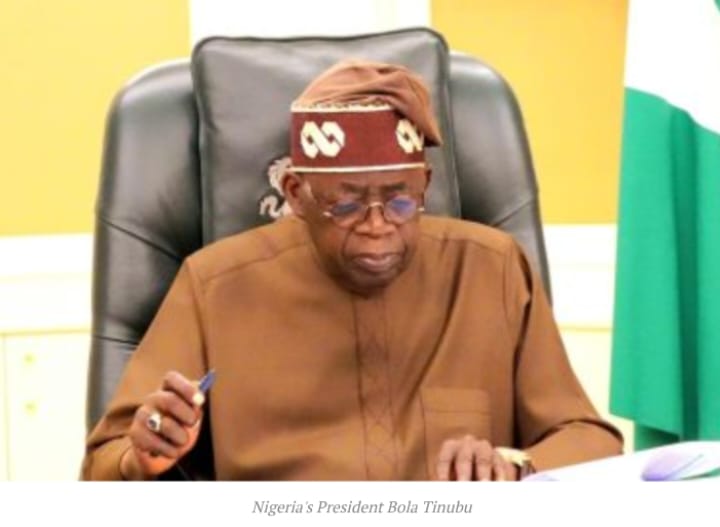
By Blaise Udunze
Nigeria is no longer flirting with deficit financing. As a country, it is living with it, not occasionally but structurally, routinely, almost comfortably. It became evident when the National Assembly rose to defend the proposed N25.91 trillion deficit in the N58.47 trillion 2026 budget that it did more than justify another year of borrowing. It normalised it. Again, the message had been clearly defined that deficit financing is no longer a temporary response to shocks; it is now a structural feature of Nigeria’s fiscal architecture.
This was confirmed by the Senate, which, led by Senator Solomon Adeola, who defended continued borrowing as inevitable. In agreement with his defence, Senator Olamilekan Adeola argued that borrowing is inevitable in the face of unpredictable revenue and vast development needs. He is not wrong. No modern economy runs without deficits. The United States borrows. European economies borrow. Even fast-growing Asian Economies have used deficits strategically.
The real issue, as Adeola himself admitted, is how Nigeria borrows and what it borrows for.
That is where the debate becomes uncomfortable. Looking at it objectively, in a plain calculation, almost half of what the federal government hopes to earn will go straight to creditors. The chronic issue is that Nigeria’s projected revenue for 2026 stands at N33.19 trillion, while expenditure is estimated at N58.47 trillion, leaving a yawning gap of over N25 trillion. Debt service alone is expected to gulp nearly N15.9 trillion. In other words, before roads are built, before hospitals are equipped, before schools are renovated, almost half of the projected revenue is already committed to servicing yesterday’s loans.
Of paramount concern is that the action being discussed does not serve as a policy that supports the economy; it is a counter-cyclical stimulus during downtime to stabilise growth. It is a structural dependence. This is to say that at the core of Nigeria’s deficit dilemma lies revenue weakness. Despite the much-touted diversification of the economy, the country remains heavily dependent on crude oil for foreign exchange and for a significant share of public revenue. The fearful part is that when oil prices fall, when production drops due to theft or quotas, or when global demand weakens, government revenue collapses. Expenditure, however, does not fall with oil prices. Salaries must be paid. Pensions must be honoured. Political offices must function. Debt must be serviced. Borrowing fills the gap.
Beyond oil, the non-oil tax base remains shallow. Nigeria’s tax-to-GDP ratio lags far behind peer economies. One of the challenges is that, as a vast informal sector, weak tax administration, compliance gaps, waivers, and leakages mean that even in years of non-oil growth, revenue does not rise proportionately. One truth the country must yield to is the advice of Minister of Finance, Wale Edun, who rightly warned that Nigeria must reduce its dependence on debt and build a stronger domestic revenue base. This stems from his understanding that in a world of high global interest rates and retreating multilateral support, borrowing is becoming more expensive and less forgiving. Yet the borrowing continues.
One troubling fact from the disclosure of the Debt Management Office (DMO) is not that Nigeria’s public debt stood at over N152 trillion by mid-2025, but it is projected to climb further. What makes this figure more of a trouble is not just its size, but its purpose. Historically, Nigeria once escaped the weight of unsustainable debt through the Paris Club exit negotiated under President Olusegun Obasanjo. Two decades later, the country finds itself in a far more complex web of domestic and external obligations. The question is simple in the sense of what has the borrowing built?
If deficits finance productive infrastructure that expands the economy’s capacity, power plants that reduce production costs, rail lines that ease logistics, and digital infrastructure that boosts exports, then borrowing can be justified. Future growth will expand the tax base and service the debt. Hence, it will be agreed that deficits, in that scenario, become bridges to prosperity.
But if deficits finance recurrent expenditure, salaries, overheads, fuel subsidies, political patronage, interest payments, then borrowing becomes a treadmill. The country runs harder each year, yet moves nowhere.
Nigeria’s fiscal pattern increasingly resembles the latter. Recurrent expenditure consumes a significant portion of revenue. In some years, debt service has exceeded the federal government’s retained revenue. This forces further borrowing simply to keep government machinery running. Borrowing to service old debt is the classic signature of a fiscal trap.
Meanwhile, the crowding-out effect is becoming pronounced. With the government aggressively issuing domestic debt instruments, over 70 per cent of risk assets in the financial system are reportedly tied to government securities. Banks prefer lending to the government at high yields rather than financing private businesses. Lending rates, influenced by a high monetary policy rate, hover between 35 and 40 per cent. For manufacturers, farmers, and tech entrepreneurs, such rates are prohibitive.
In effect, the state is absorbing liquidity that could otherwise power private-sector growth. The engine of sustainable revenue, the productive economy, is being starved.
Supporters of the current approach argue that deficits are necessary to close Nigeria’s massive infrastructure gap. Contrary to their argument, the roads are dilapidated. Power supply remains unreliable. Security spending has ballooned in response to persistent threats. With a fast-growing population, social spending pressures are immense. In such a context, refusing to borrow would mean freezing development.
That argument carries weight. Nigeria cannot austerity its way to prosperity. While slashing expenditure indiscriminately could worsen unemployment and deepen poverty.
However, borrowing without institutional reform is a lot more dangerous. Economist Adi Bongo has warned that asset sales, privatisations, and new borrowing will fail without strong oversight and accountability. Nigeria’s history of public-private partnerships and sectoral reforms, particularly in the power sector, offers cautionary tales. Assets sold to politically connected entities without capacity did not deliver efficiency gains. Institutions were created but not empowered. Data was published but not interrogated. Borrowing into weak institutions is like pouring water into a leaking basket.
There is also the issue of political budgeting. Election cycles often bring expanded spending and proliferating projects. Revenue does not necessarily rise in tandem. Structural deficits become politically convenient. Once normalised, they are difficult to reverse.
The Senate President, Godswill Akpabio, who recently framed the 2026 budget as a “moral document,” said it must therefore be judged not by its size, but by its outcomes. The question that should follow such a comment is, will the N26 trillion capital allocation translate into completed roads, functional health centres, and reliable electricity? Or will delayed releases, procurement bottlenecks, and weak oversight roll projects into yet another fiscal year?
Nigeria’s history of overlapping budgets and low capital implementation rates raises legitimate scepticism. Economists have cautioned that attempting to execute multiple large budgets concurrently strains administrative capacity and encourages rushed, low-value spending. When execution falters, the borrowed funds do not generate returns. Yet the interest meter keeps running.
Subsidy reform illustrates both the promise and the risk. The removal of fuel subsidy under President Bola Tinubu was described as a turning point, which was commended by an international organisation. In theory, eliminating subsidies should free fiscal space for productive investment like infrastructure, health, or education, as expected. But transparency in how those savings are redeployed remains crucial, especially in how the subsidy removal is being used. The truth remains that trust erodes if citizens do not see tangible improvements in infrastructure and services to showcase how the money realised from subsidies is being expended. Compliance weakens because once trust and fairness decline, people will easily default or be less willing to obey rules (like paying taxes or following regulations). Revenue mobilisation becomes harder. Trust is the invisible currency of fiscal reform.
Exchange rate pressures add another layer of complexity. When the naira weakens, external debt servicing costs rise in local currency terms; import-related spending increases. Even if reserves appear strong, they are not freely spendable funds; they are buffers against external shocks. Mistaking reserves for budgetary liquidity is a dangerous illusion.
The global context is also less forgiving. Developing countries now pay far more in debt service than they receive in aid. Capital flows are volatile. In such an environment, fiscal discipline is not optional; it is survival.
So, are Nigeria’s deficits building future revenue capacity or merely financing present consumption?
The evidence is mixed, but the tilt is worrying. There are genuine reform efforts underway, such as tax administration overhaul, digitised revenue monitoring, electricity sector reforms, and efforts to attract capital importation. There are signs of macroeconomic stabilisation that are moderating inflation, improving reserves, and modest GDP growth. These are not trivial.
Yet the scale and persistence of deficits, the heavy burden of debt service, the crowding-out of private credit, and the lack of transparency around execution suggest that borrowing is increasingly funding continuity rather than transformation or driving meaningful structural change.
Deficit financing becomes a growth strategy only when three conditions are met, such as when borrowed funds are channeled into productivity-enhancing investments (such as infrastructure, energy, manufacturing, education, and these things must expand the economy’s capacity to produce); institutions ensure transparency and value for money; and economic growth outpaces debt accumulation, so the country can comfortably service and repay what it has borrowed. When those conditions weaken, deficits mutate into a fiscal trap.
Nigeria stands at that junction. The Senate is right that borrowing in itself is not evil. But normalising structural deficits without tightening or simultaneously enforcing expenditure discipline, expanding revenue beyond oil, strengthening institutions, and reducing the cost of governance, then the country is taking a significant risk.
A nation can borrow to build bridges. Or it can borrow to pay salaries. The former compounds growth. The latter compounds debt.
If Nigeria’s deficits do not translate into visible infrastructure, expanded industrial capacity, thriving private enterprise, and rising tax revenues, history will record this era not as bold reform, but as deferred reckoning.
Deficits are not destiny. But when they become routine, they stop being temporary tools, unexamined, and politically convenient; they shape the destinies of Nigerians. From today, as a sovereign nation, Nigeria must decide whether it is borrowing to survive the present or to secure the future. The choice Nigeria makes about how it uses deficit financing will determine whether it becomes a growth ladder or locks it into a worsening cycle of debt that becomes harder and more expensive to escape over time, while the cost of escaping grows each year.
Blaise, a journalist and PR professional, writes from Lagos and can be reached via: [email protected]
Feature/OPED
Billions in Nigeria’s Reserves, But Where is the Growth?

By Blaise Udunze
The moment the Governor of the Central Bank of Nigeria (CBN), Olayemi Cardoso, recently announced that Nigeria’s foreign reserves had inched to $49 billion as of February 5, 2026, the news was received with understandable enthusiasm.
He described the development as “a very important statistic” when speaking at the 2nd National Economic Council (NEC) Conference in Abuja, while noting a 4.93 per cent increase and emphasising that Nigeria had moved from being a net seller to a net buyer of foreign exchange. He cited improved remittance inflows, a narrowing gap between official and parallel market exchange rates, and greater confidence in the naira as evidence that reforms were working.
On the surface, the numbers are reassuring. The premium between official and parallel market rates has reportedly fallen to under 2 per cent. Remittances have improved following deliberate engagement with the diaspora. Nigerians can increasingly rely on naira cards for international transactions. It can be said that investors are earning positive real returns, banks are recapitalising, equity markets are recovering, and macroeconomic indicators such as GDP growth of 3.98 per cent, a current account surplus of $3.42 billion in the third quarter of 2025, and a reported moderation in inflation to 15.15 per cent are presented as signs of stabilisation.
So far, beyond the celebratory headlines lies a deeper and more consequential question, in the form of, what does the fixation on foreign reserves really tell us about the underlying strength of the Nigerian economy?
History and economic logic suggest that when a central bank repeatedly elevates foreign reserves as a central achievement, it often signals that the true engines of growth are either weak or underdeveloped. Strong reserves are not built through declarations, press conferences, or defensive monetary manoeuvres. They are built through systems that generate value, exports, productivity, and trust. Countries with durable reserve positions did not chase reserves; they built economies that produced them naturally.
This distinction matters greatly for Nigeria.
Foreign reserves are important, but they are not a development strategy. They are a buffer, not a foundation. They are an outcome of economic vitality, not a substitute for it. When reserves become the centrepiece of economic storytelling, there is a risk that policymakers mistake statistical comfort for structural strength.
Even Nigeria’s celebrated $49 billion reserve figure requires closer scrutiny, which appears to be more of sexing up the figures. Gross reserves make headlines, but net usable reserves are what protect a currency in moments of stress. A significant portion of reported reserves is often tied up in swaps, forward commitments, and external obligations. When these are stripped out, the net buffer available to defend the naira is far smaller than the headline figure suggests. The gap between gross and net reserves is too large to justify unqualified confidence about currency stability, especially in an economy that remains import-dependent and structurally fragile.
The danger of over-fixating on reserves is not unique to Nigeria, but it is particularly acute here because of the economy’s narrow production base, which subliminally calls for sexing up the figures. Despite decision-makers prematurely applauding the reserves’ growth, the apex bank must rethink its approach. The reserves are not generated through production-based or stronger export means but rather largely from borrowing (sales of Eurobonds) or through government loans, which come in as dollars to the CBN that temporarily boost dollar inflows. This points to the fact that Nigeria still exports little beyond crude oil, imports most manufactured goods, and relies heavily on volatile capital inflows. In such a context, reserves require constant defence rather than organic replenishment. Tight monetary policy, FX restrictions, and moral persuasion may buy time, but they do not solve the underlying problem of insufficient foreign exchange generation.
By contrast, countries with strong reserve positions followed a very different path. Unlike Nigeria, countries like Saudi Arabia, with foreign reserves of about $410 billion, paired subsidy reforms with visible reinvestment in infrastructure, social welfare, and alternative energy systems. Indonesia, with reserves of roughly $153 billion, combined fiscal reforms with expanded social assistance and a shift toward targeted household support, ensuring that reform pain was offset by tangible benefits. Reserves are mainly meant to grow from productive economic activities like Singapore, whose reserves stood at approximately $397 billion at the end of 2025, as it built its position through decades of disciplined industrial policy, export competitiveness, domestic savings, and institutional credibility. In all these cases, reserves were not the objective; they were the by-product of deliberate economic architecture.
In most successful developmental states, public expenditure plays a catalytic role in growth. Unlike Nigeria’s, most countries’ expenditures It crowds in private investment, expand infrastructure, lower transaction costs, and build productive capacity. Over time, this deepens domestic capital formation, drives industrial productivity, supports export diversification, and strengthens external balances. Nigeria’s recent experience, however, appears to diverge from this model.
Rather than deploying fiscal policy aggressively to stimulate productive capacity, government financing has increasingly leaned on the domestic capital market. While this approach has attracted foreign capital inflows, much of this capital has been short-term portfolio investment into treasury bills, government bonds, and money market instruments. A fact that is well established is that these inflows can temporarily stabilise liquidity and support the exchange rate, but their multiplier effects on the real economy are minimal. In the absence of strong productive investment for a country like Nigeria, the giant of Africa, this pattern resembles constructing a skyscraper on weak foundations, which is impressive in appearance, but structurally fragile.
This fragility is evident in the broader economy. Especially this kind of growth is associated with Nigeria in 2025, which portrays a country that is increasingly survival-led rather than productivity-driven. The underlying challenge today is that households, small businesses and even industrial firms are left with no option but to adapt to rising costs and shrinking real incomes by expanding low-productivity activities. Industrial depth remains shallow. Domestic capital accumulation is weak. Export capability outside oil is limited. Labour productivity continues to lag. These are not the conditions under which reserves become self-sustaining.
This is why the central bank’s strategic focus must extend far beyond reserve accumulation. If the CBN genuinely seeks to grow the economy and build reserves sustainably, it must prioritise the mechanisms that generate foreign exchange organically. The most important of these is productive credit expansion. Central banks around the world are expected to shape economies not only through interest rates but through the direction of credit. Prolonged monetary tightness may suppress inflation at the margins, but it also suppresses investment, output, and employment, as is the case in Nigeria. Contrary to Nigeria’s lived experience, countries that successfully built reserves deliberately channelled affordable, long-term credit to manufacturing, agro-processing, and export-oriented sectors, but the same cannot be said of Nigeria. Nigeria cannot tighten its way into prosperity.
Closely linked to this is the need for a serious export-led industrial strategy. Nigeria’s trade challenge is often framed as an import problem, but it is fundamentally an export deficiency. Banning imports or rationing foreign exchange does not create competitiveness. Export growth does. Sustainable reserves come from selling more to the world than one buys, particularly in manufactured goods and tradable services. Oil exports may still matter, but they are volatile and finite. Value-added exports are repeatable, scalable, and employment-intensive.
Exchange rate stability, too, must be approached through supply rather than fear. Currency pressure reflects insufficient FX supply more than excessive demand. Strengthening real economic fundamentals, which calls for expanding non-oil exports, formalising remittance channels, and attracting long-term productive capital, will do more to stabilise the naira than administrative controls mixed with sexing up figures. Predictability matters, and for this reason, investors may tolerate risk, but they may be forced to withdraw when policies are inconsistent.
Infrastructure financing is another critical missing link. No economy exports competitively without reliable power, efficient transport, and functional logistics. While infrastructure is often treated as a purely fiscal responsibility, central banks in many emerging economies have played catalytic roles in financing industrial infrastructure. Supporting industrial parks, logistics hubs, processing zones, and energy projects would address one of the root causes of Nigeria’s weak export performance and fragile reserves.
Equally important is the mobilisation of domestic savings. Strong reserves are easier to build when a country funds its development internally. One of its domestic savings that has been lying fallow is that Nigeria’s pension and insurance funds remain under-deployed in productive sectors. For a country that is truly angling for growth and with the right regulatory frameworks, these long-term pools of capital can support infrastructure, manufacturing, and export industries, reducing dependence on volatile foreign inflows.
Inflation control must also be re-examined. This is one grey area with Nigeria’s system as its inflation is largely cost-driven, fueled by energy costs, logistics bottlenecks, FX shortages and insecurity. It must be understood that addressing it solely through interest rate hikes risks shrinking output in terms of economic production and growth while prices remain elevated, as is the case today. The policy-makers in Nigeria must understand that supply-side interventions that reduce production costs and stabilise input availability are more likely to deliver durable price stability and stronger reserves than monetary tightening, especially in the case of raising interest rates alone.
The CBN has projected that GDP growth could reach 4.49 per cent, inflation could moderate to 12.9 per cent, and reserves could exceed $50 billion. These projections are presented as evidence of consolidation. Yet many economists caution that macroeconomic stability, while necessary, is not synonymous with sustainable growth. Even if the provided official statistics may suggest that the economy is improving, the reality is that the majority of the populace are not experiencing the benefits, as is the case in Nigeria, where the unemployment rate is high, wages aren’t keeping up with costs, and many households are barely making ends meet.
To further drive the point, Gbenga Olawepo-Hashim has argued that the true measure of economic performance is not headline figures but the living conditions of citizens. This is to say that economic growth is meaningless if it doesn’t create jobs, purchasing power, and opportunity, cannot sustain political or social stability, nor can foreign reserves grow sustainably.
Going forward, it is advisable that the foreign reserves, therefore, should be read for what they are, as a reflection of deeper economic health. When production expands, exports diversify, infrastructure improves, capital deepens, and trust is restored, reserves grow quietly and sustainably. When these foundations are weak, reserves require constant defence and loud celebration.
Today, Nigeria is at a critical point where it must make a major decision, either the choice is between managing reserves endlessly or building an economy that earns them effortlessly. The former offers headlines and is unsustainable. The latter offers prosperity, and it is sustainable in the long term.
Blaise, a journalist and PR professional, writes from Lagos and can be reached via: [email protected]
Feature/OPED
Inside Nigeria’s Telecom Exploitation Crisis Draining Household Budgets

By Blaise Udunze
For about a year now, millions of Nigerians relying on the internet to make a living have been groaning over the manipulation of airtime and data consumption that has turned into a relentless drain on household budgets. Painfully, individuals and businesses buying airtime or data increasingly feel less like paying for a service and more like entering a wager whose odds are permanently stacked against the consumer. Around the nooks and crannies of the country, across cities and rural communities alike, subscribers tell the same weary story of data that evaporates mysteriously, airtime consumed faster than reason allows, and customer care responses that sound rehearsed rather than responsive. The majority will agree that this collective frustration is not a coincidence, nor is it merely the product of careless smartphone use, because others might argue that there are several technical factors inducing rapid mobile data usage. Leave it or take it, it is the outcome of a broken ecosystem where multinational telecom companies wield immense power in an environment marked by weak institutional checks, limited transparency, and a population stretched thin by economic hardship.
The recent 50 per cent upward adjustment of telecom tariffs, later revised in policy conversations to 35 per cent, has intensified this tension, though it is not justifiable as exploitation. For millions of Nigerians already battling inflation, currency volatility, and shrinking purchasing power, the hike landed not as an economic necessity but as an additional burden. When communication costs begin to claim up to 15 per cent or, in some cases, nearly 30 per cent of the national minimum wage, something fundamental has gone wrong. Access to communication is no longer a luxury; it is the infrastructure of modern survival. Yet the price Nigerians are now paying for this access is becoming socially and economically unsustainable.
A published report showed that as of January 2025, statistics from the Nigerian Communications Commission (NCC) disclosed that there were 141 million Internet users via the narrowband (GSM), while broadband penetration stood at 45 per cent. Data consumption has increased to 1,000,930.6 terabytes.
A review of the multinational telecom companies indicated that the new tariff for MTN’s revised data prices showed the 1.8GB monthly plan now goes for N1,500, against the previous 1.5GB plan priced at N1,000. The 20GB plan has been adjusted to N7,500, up from N5,500, while the 15GB plan now costs N6,500, rising from N4,500.
Under this new pricing regime, the same would be said of Airtel as it has replaced its cheapest monthly data plan of 1.2GB plan for N1,000 with 2GB plan for N1,500. For 3GB for N2, 000 (from 1.5GB at N1, 200), 4GB for N2, 500, formerly 3GB at N1, 500, and 8GB for N3, 000 (formerly 4.5GB at N2, 000). Other adjustments include 10GB for N4, 000 (formerly 6GB at N2, 500), 13GB for N5, 000 (from 10GB at N3, 000), 18GB for N6, 000 (formerly 15GB at N4, 000) and 25GB for N8, 000 as this replaces 18GB at N5, 000.
Further, the 75GB monthly bundle, which costs N16, 000 has been renamed as plan, costing N20, 000; 100GB for two months, costing N20, 000 have been upgraded to 150GB to cost N40, 000, while 400GB for three months, which cost N50,000 is now upgraded to 480GB to cost N120,000.
The bubble burst was further complicated by a tariff increase, which is the resurgence of widespread complaints about rapid data depletion. The issue is that businesses, students, families, and professionals are now raising alarms that data bundles, which previously lasted weeks, now disappear in days or even hours, which is questionable. Another critical area affected is small and medium-sized enterprises that rely on cloud services, digital marketing, logistics platforms, and online payments, which are finding their operating costs spiralling without any justification. For many, the crux of the matter is that profitability is being quietly eroded, not by poor business decisions, but by the rising cost and unpredictability of connectivity.
The telecom operators, backed by the regulator, have responded with familiar explanations that have always favoured their unscrupulous and illicit activities, with the explanation that data, they say, depletes faster because of background applications, automatic updates, high-definition streaming, malware, faster networks, and users’ failure to manage device settings. Technically, these explanations are not false because modern smartphones are indeed data-hungry, and digital behaviour has evolved. But this defence, repeated endlessly, misses the deeper issue, as the fact is that the problem Nigerians are confronting is not simply that data is consumed; it is that the system governing how data is measured, billed, and explained is not transparent, hard to understand, unaccountable, and tilted entirely in favour of the service providers.
In Nigeria’s telecom market, operators are both the umpires and the players. They measure usage, bill customers, interpret anomalies, and adjudicate complaints, which does not create ground for fair play. Subscribers, on the other hand, are expected to accept consumption figures hook, line, and sinker, which they cannot independently verify. An unacceptable fact is that there are no universally accessible, third-party audited data meters that allow users to confirm what they have truly consumed in real time. Customers and service providers do not have equal access to information; this asymmetry creates fertile ground for silent overbilling, whether intentional or structural, and it erodes trust in a sector that should be built on transparency, not obscurity.
One critical aspect that must be addressed squarely is that the regulatory weakness compounds the problem. While the Nigerian Communications Commission possesses statutory authority, enforcement has often appeared slow, reactive, and insufficiently punitive. Penalties imposed on multinational firms with billion-dollar balance sheets rarely feel consequential. Investigations drag on, public disclosures are limited, and even when infractions are established, consumers seldom receive refunds. In such an environment, corporate restraint becomes optional. Where regulators lack teeth, corporations inevitably test boundaries.
The market structure itself offers little relief, as the market setup does not protect consumers. Nigeria’s telecom sector is effectively oligopolistic, dominated by a few large, powerful players with similar pricing models and limited incentive to compete on fairness. Tariff structures are deliberately complicated and complex, with multiple conditions and layered with bonuses, rollover conditions, expiry clauses, and promotional data that behaves differently from paid data. For the average subscriber, understanding these distinctions is exhausting. Complexity becomes a strategy, not an accident, reducing accountability while increasing revenue certainty for operators.
Though economic pressure on the telecom companies is real, and it must be acknowledged, knowing fully well that exchange rate volatility, energy costs, vandalism, and inflation have hurt profitability. Airtel’s revenue decline and MTN’s reported losses underscore the financial strain facing operators in Nigeria’s macroeconomic climate. It must be understood that corporate hardship does not justify consumer exploitation. The risk arises because multinational firms are subjected to pressure to meet global revenue targets and repatriate profits, adopt aggressive monetisation strategies in markets where regulation is weak, and consumer resistance is fragmented.
From experiences thus far, the human cost of this imbalance is becoming impossible to ignore. From students like Abiodun Yusuf, who spends most of his allowance on data that barely supports his academic needs, and also to small business owners like Cynthia Jude, whose online shop struggles to stay viable, the stories repeat themselves with unsettling consistency and outcomes. Families ration children’s screen time not out of discipline, but out of financial desperation. The adverse part that has continued is the widening of an already dangerous digital divide, as rural communities withdraw from digital platforms altogether because of exploitation.
Perhaps most telling is how quickly exploitation has been normalised in Nigeria. Many Nigerians now shrug and say, “That’s how it is.” This resignation is the greatest victory for an unfair system, and when people stop believing that fairness is possible, for this reason, exploitation becomes invisible, and abuse thrives without resistance.
Consumer advocacy groups like NATCOMS have begun to signal a shift in posture, including the possibility of court action. Labour unions have threatened boycotts. Civil society organisations warn of social and economic repercussions. These responses indicate that public patience is wearing thin. If left unaddressed, subscription apathy, however gradual, could ultimately undermine the very growth the telecom sector seeks to protect.
For a better understanding of what Nigeria faces is not merely a dispute over megabytes and tariffs, for clarity, it is a governance challenge that cuts across corporate ethics, regulatory independence, consumer empowerment and economic justice. A digital economy cannot thrive on distrust. Transparency and easily understandable data billing must become mandatory, not an aspirational goodwill promise. Independent audits should be public, regular, and credible. Complaint resolution mechanisms must be simplified, fast, and binding. Regulators must act not as mediators between equals, but as defenders of the public interest in an asymmetrical power relationship.
Equally important is consumer education, but awareness campaigns alone cannot substitute for structural reform. Digital literacy must go hand in hand with corporate accountability because the better it is understood that teaching users how to conserve data does not absolve operators from the responsibility to bill fairly and transparently.
At its core, the telecom debate reflects a large Nigerian dilemma, if not a broader problem in Nigeria, as corporate power has grown faster than institutional strength. Until regulators are truly independent and totally free from corporate and political influence, transparency is enforced by law, and consumers are recognised and treated not as passive revenue streams but as stakeholders with rights, exploitation will remain systemic rather than accidental or a series of isolated mistakes.
Communication is the bloodstream of modern society. When access to it becomes exploitative, the cost is paid not only in naira but in opportunity, dignity, and trust. Nigeria must decide whether its digital future will be built on fairness that respects consumers or allow it to rest on fatigue, frustration, and exploitation of users. The choice Nigeria makes will make more impact, and the answer will shape not just the telecom sector but the credibility of governance in an increasingly connected nation.
Blaise, a journalist and PR professional, writes from Lagos and can be reached via: [email protected]
-

 Feature/OPED6 years ago
Feature/OPED6 years agoDavos was Different this year
-
Travel/Tourism10 years ago
Lagos Seals Western Lodge Hotel In Ikorodu
-

 Showbiz3 years ago
Showbiz3 years agoEstranged Lover Releases Videos of Empress Njamah Bathing
-

 Banking8 years ago
Banking8 years agoSort Codes of GTBank Branches in Nigeria
-

 Economy3 years ago
Economy3 years agoSubsidy Removal: CNG at N130 Per Litre Cheaper Than Petrol—IPMAN
-

 Banking3 years ago
Banking3 years agoSort Codes of UBA Branches in Nigeria
-

 Banking3 years ago
Banking3 years agoFirst Bank Announces Planned Downtime
-

 Sports3 years ago
Sports3 years agoHighest Paid Nigerian Footballer – How Much Do Nigerian Footballers Earn


